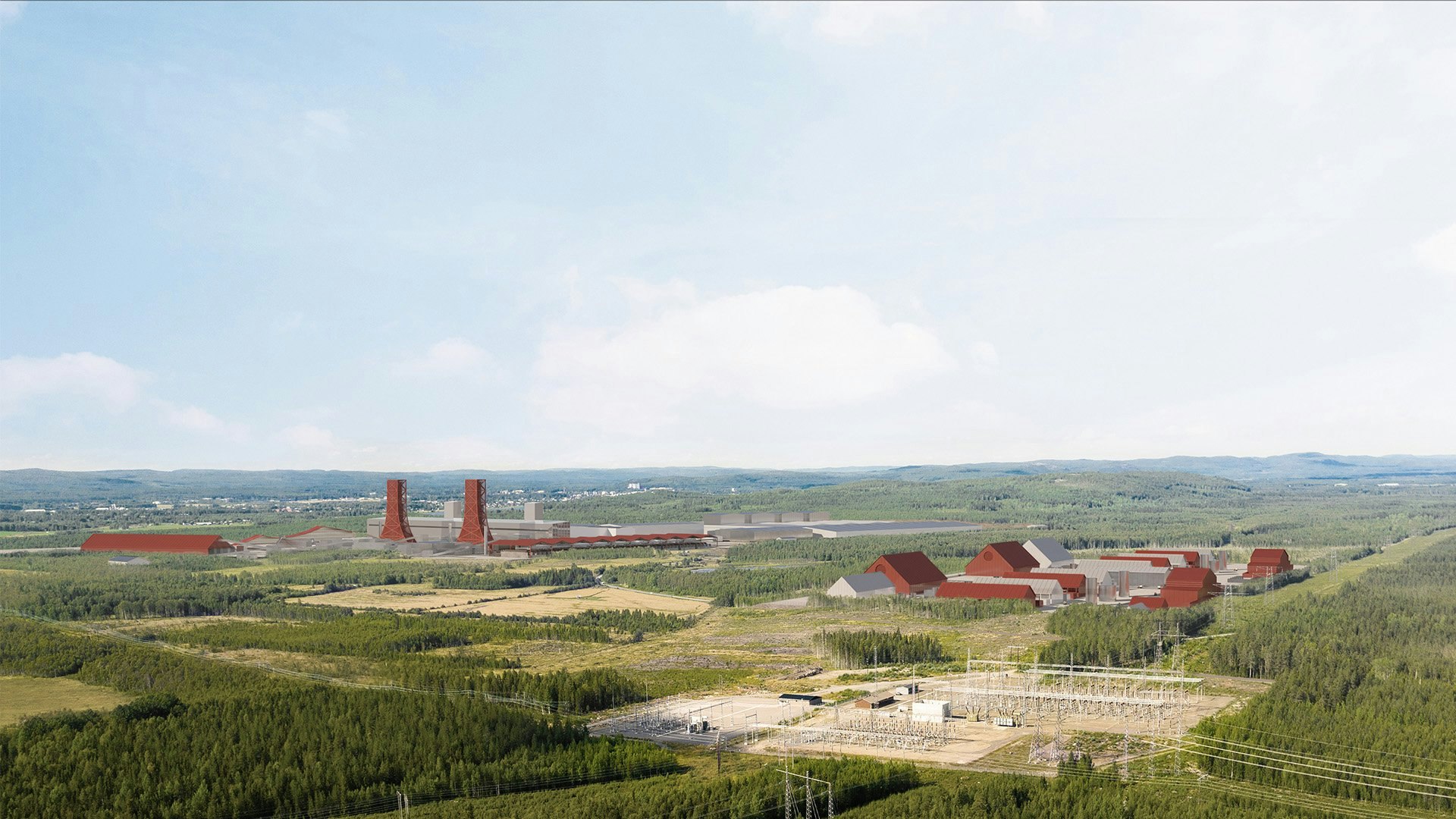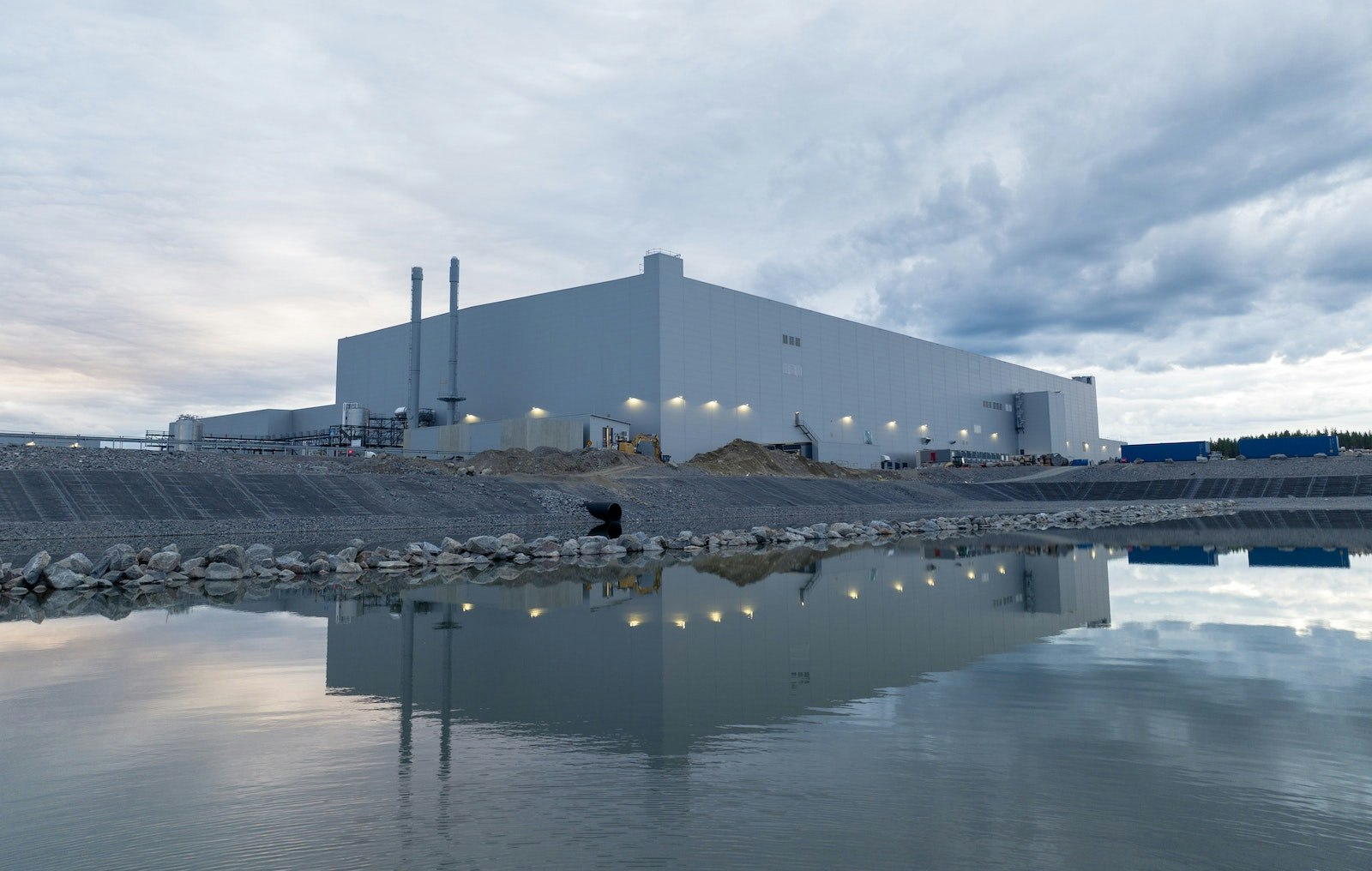From afar, Sweden’s known as a place where the state and private companies work in tandem to help industrial projects flourish. The country has spawned industrial giants, from vehicle manufacturers Volvo and Scania, to engineering company ABB.
But one of its younger businesses, green steel startup Stegra, is calling that reputation into question, after it was denied funding by the Swedish government.
Stegra, which has raised €7.7bn from the likes of Microsoft and Mercedes Benz, told Sifted the move could hinder the timeline of its project. The company described the government actions as ‘damaging’ Sweden’s attractiveness to international investors, and creating “uncertainty and unpredictability.”
Stegra’s comments follow the high-profile bankruptcy of Northvolt, Sweden’s flagship gigafactory project, which had lobbied the state for emergency funding as it started to run out of cash. The bankruptcy left Stegra as Sweden’s largest climate tech startup — and it’s now ramping up the pressure on the government too.
Lack of support could slow Stegra project
Stegra aims to produce fossil-free steel using green hydrogen instead of coal. It’s building a steel plant in Boden, Sweden.
In September 2022, the company applied for SEK 1.65bn (€152m) in support from Klimatklivet (‘the Climate Leap’) — a government package to support green initiatives — for its factory. The European Union had greenlit the sum, but, this week, local media Dagens Industri reported that it had been denied by the Swedish Environmental Protection Agency, responsible for overseeing the grant.
The decision was made because Stegra’s plant will emit around 500k tonnes of carbon dioxide per year until it manages to achieve fossil-free production in 2045, the agency said.
Karin Hallstan, Stegra’s communications manager, tells Sifted the company believes it is in line with the parameters set out by the Klimatklivet initiative, with the main purpose to support initiatives that reduce emissions.
The decision will knock investors’ confidence in Sweden, Hallstan says.

“Failing to follow through after receiving the green light from the EU creates uncertainty and unpredictability for investors, which makes Sweden less interesting for international capital,” Hallstan says.
“It damages the Swedish government’s explicit ambition to strengthen Sweden’s attractiveness for international investments.”
Stegra needed the funds to compete with Sweden’s state-owned companies and foreign actors which receive larger support sums, Hallstan says.
Stegra’s main competitor in Sweden is Hybrit, a green steel initiative from steel company SSAB, mining company LKAB and energy giant Vattenfall. All three companies are partly or fully owned by the Swedish state. At the end of 2023, Hybrit was awarded a grant of €3.1bn (€287m) from a government package to support industrial initiatives.
If no further support is provided, Stegra’s project will be 98% privately financed, Hallstan says. “It is possible that lack of support impacts the acceleration of the project.”
Northvolt’s struggle for state funds
Stegra’s not the first climate tech company to petition Sweden’s government for funds. Swedish gigafactory Northvolt, which was started by the same investment group as Stegra, looked for state support in the final months leading up to its collapse.
A month before Northvolt filed for Chapter 11 bankruptcy, Swedish Prime Minister Ulf Kristersson said the country was committed to being “a good place for new technology that is needed in the green transition,” but that it was not relevant for the Swedish state to step in and help the company.
“We don’t involve ourselves in the business plans of individual companies but we do want to be a good place for this kind of industry,” he said.
“The Swedish government had a pretty low interest in subsidising Northvolt,” a person close to the company told Sifted. “Sweden as a country is simply against it, they see it as a game they can’t win.”
Northvolt received €60m from the Swedish government, compared to a €902m package offered to it by the German government, and €473m from Canada.
The EU support framework a “double-edged sword”
Christian Thomann, associate professor in corporate finance at the Royal Institute of Technology (KTH) in Stockholm, says Sweden used to have a more active industrial policy, but now offers less support than countries like Germany.
However, EU regulations have made it increasingly difficult to give state support. For countries to financially support local companies, they need approval from the EU — as in the case of Germany’s state aid package of $902m to Northvolt. Non-approved state aid, however, can lead to large fines, says Thomann.

“There are tough rules in Europe to prevent this competition over state aid. There have been openings to change this recently, but has been a straightjacket when it comes to real subsidies for companies,” he says.
The regulation that helps maintain fair competition and limits market distortion has, in the case of Northvolt and Stegra, created obstacles for businesses that need support to tackle long-term challenges, innovate or compete globally, Thomann says. It’s like a “double-edged sword”.
Backing state-owned companies
The Swedish state fully or partly owns 44 companies, worth an estimated SEK 820bn (€76bn). Those companies have enjoyed relative support from the government, in tough times.
One of those is Scandinavian Airlines, which received a credit facility from the state in 2012 and capital support in 2020, to ensure its operations continued. Similar packages have also been delivered to Swedish/Danish post company Postnord in 2018.
But Sweden seems to be less supportive of climate tech companies such as Northvolt and Stegra than other countries, says Gustav Martinsson, professor of finance at Stockholm University.
“Conceptually, companies like Stegra, which are truly trying to solve a climate issue, are important. The climate problem with steel is significant as it has a large carbon footprint, and it is possible to produce it without huge emissions. However, carbon pricing alone is not enough to facilitate a transition to climate-friendly steel,” Martinsson says.
“What Stegra is trying to do is solve something and create a market for something that didn’t exist before. To create this market, support is needed to facilitate these massive investments.”
Sifted has reached out to the Swedish government for a comment.
Read the orginal article: https://sifted.eu/articles/stegra-sweden-government-funding/


